

Share
21st July 2018
08:37am BST

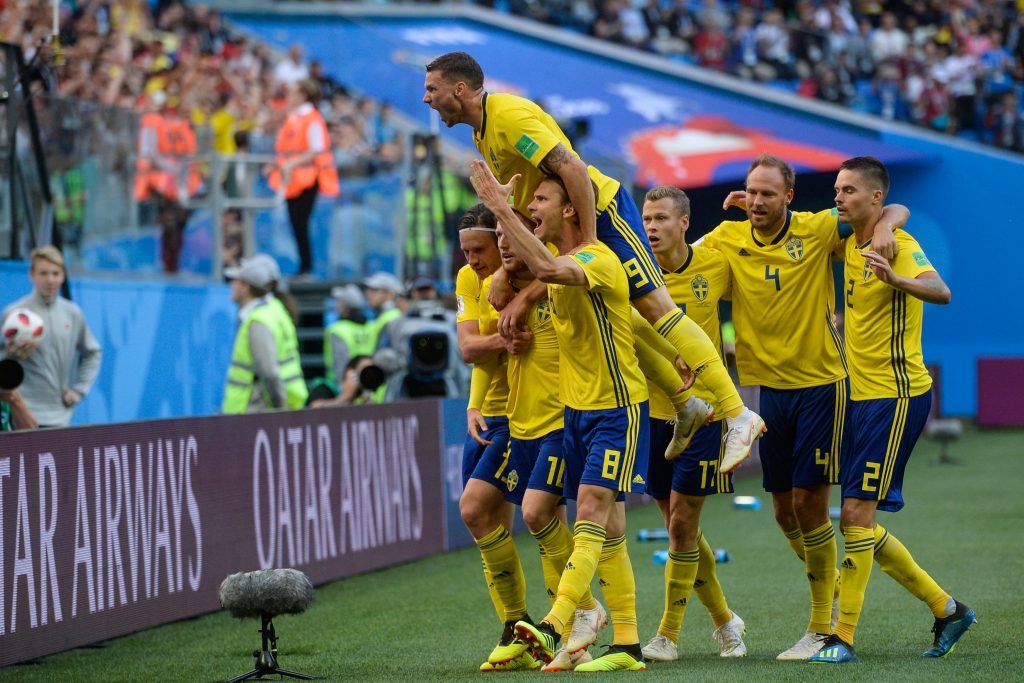 At Euro 2016, Sweden finished below Ireland in the group stages, crashing out without winning a game, their only goal of the tournament was a Ciaran Clark own-goal. Two years later, they reached the quarter-finals of the World Cup. On the way to the last eight of the tournament, they finished top of a group containing Germany and Mexico. In qualifying, they finished ahead of the Netherlands and knocked out Italy in the playoffs.
In the second-leg at the San Siro, Sweden had Gustav Svensson and Seb Larsson in central midfield. Larsson plays for Championship strugglers Hull City and Svensson plays for Seattle Sounders in MLS. A squad of unremarkable players evidently isn't a barrier to success. Either is a small population.
Croatia reached the final with a smaller population than Ireland. Iceland qualified for the tournament with a population the size of Cork. On the way to the World Cup, they finished ahead Croatia in their group, and beat Turkey 3-0 in Istanbul. Ireland could barely string three passes together when they played the same opponents in a friendly earlier this year.
At Euro 2016, Sweden finished below Ireland in the group stages, crashing out without winning a game, their only goal of the tournament was a Ciaran Clark own-goal. Two years later, they reached the quarter-finals of the World Cup. On the way to the last eight of the tournament, they finished top of a group containing Germany and Mexico. In qualifying, they finished ahead of the Netherlands and knocked out Italy in the playoffs.
In the second-leg at the San Siro, Sweden had Gustav Svensson and Seb Larsson in central midfield. Larsson plays for Championship strugglers Hull City and Svensson plays for Seattle Sounders in MLS. A squad of unremarkable players evidently isn't a barrier to success. Either is a small population.
Croatia reached the final with a smaller population than Ireland. Iceland qualified for the tournament with a population the size of Cork. On the way to the World Cup, they finished ahead Croatia in their group, and beat Turkey 3-0 in Istanbul. Ireland could barely string three passes together when they played the same opponents in a friendly earlier this year.
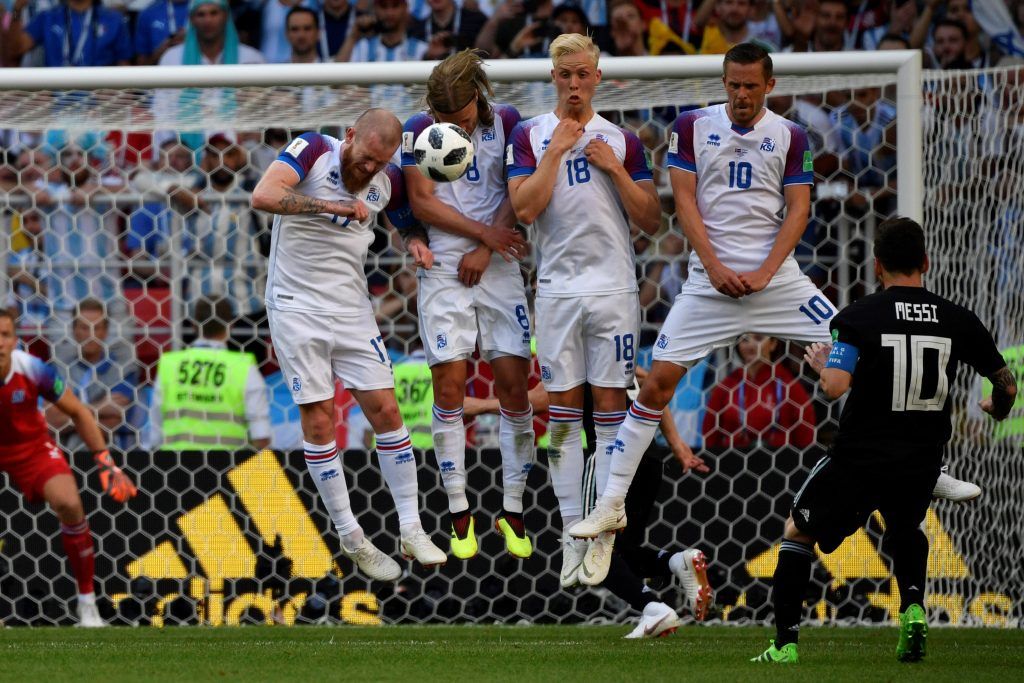 There was little between the European sides in Russia. Sweden eventually lost to England, a team that were 20-minutes from the World Cup final because of their ability to score from set-pieces. Denmark and Russia only lost on penalties to Croatia, who outplayed winners France in the final. Of the eight Uefa playoffs last November, four were goalless draws, and two other ties finished 1-0. Apart from Ireland’s 5-1 loss to Denmark, and Croatia’s 4-1 win against Greece, the margins between the teams were small and there was little in terms of quality.
The difference between the unremarkable European teams at the World Cup and Ireland isn't merely that they have better footballers. In the month that Ireland lost 5-1 to Denmark in their World Cup playoff, Robbie Brady was nominated for the Premier League player of the month award. Kevin De Bruyne, Mohamed Salah and Eden Hazard were among the others nominated. In the same month that he was anonymous during a drubbing for Ireland, Brady was competing against some of the best players in the world for an individual award.
Obviously, he's not on the level of those three world-class players, but he's no worse than any player in the Sweden or Iceland squad.
There was little between the European sides in Russia. Sweden eventually lost to England, a team that were 20-minutes from the World Cup final because of their ability to score from set-pieces. Denmark and Russia only lost on penalties to Croatia, who outplayed winners France in the final. Of the eight Uefa playoffs last November, four were goalless draws, and two other ties finished 1-0. Apart from Ireland’s 5-1 loss to Denmark, and Croatia’s 4-1 win against Greece, the margins between the teams were small and there was little in terms of quality.
The difference between the unremarkable European teams at the World Cup and Ireland isn't merely that they have better footballers. In the month that Ireland lost 5-1 to Denmark in their World Cup playoff, Robbie Brady was nominated for the Premier League player of the month award. Kevin De Bruyne, Mohamed Salah and Eden Hazard were among the others nominated. In the same month that he was anonymous during a drubbing for Ireland, Brady was competing against some of the best players in the world for an individual award.
Obviously, he's not on the level of those three world-class players, but he's no worse than any player in the Sweden or Iceland squad.
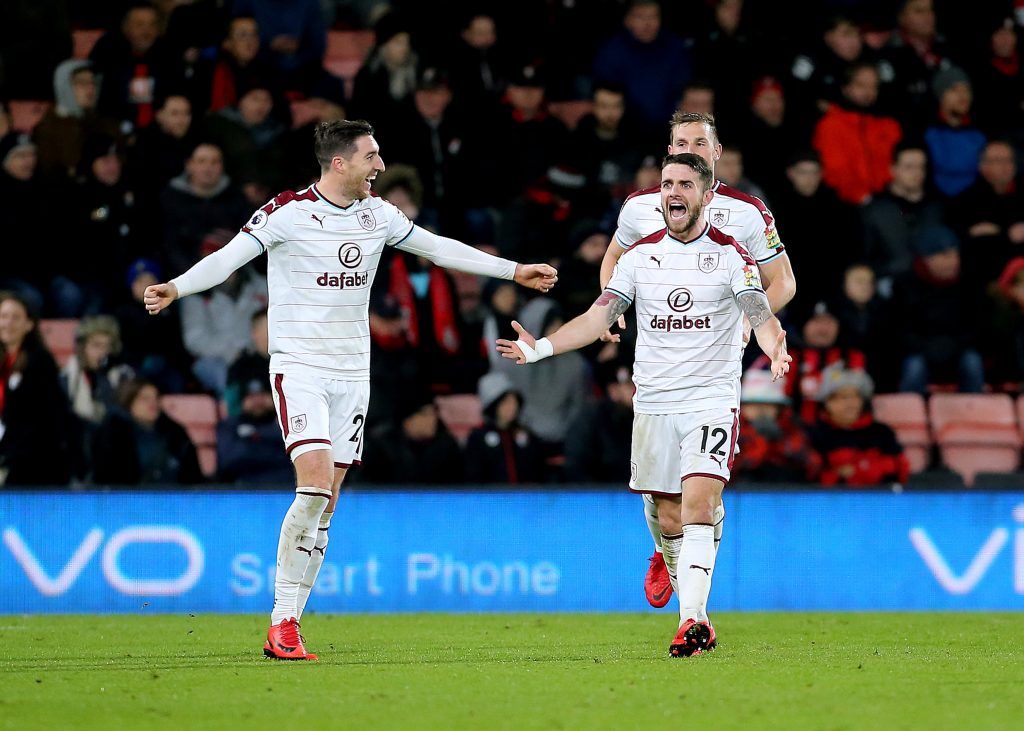 Why was Brady in the form of his life for his club at the same time he looked completely lost for his country? Why has Jeff Hendrick not excelled for Ireland since Euro 2016? It could be because that there's a massive difference between the set-up at their club and their national team. Burnley are a well-coached side. Sean Dyche has made them more than the sum of their parts through diligent coaching and hard work. They have one of the lowest wage budgets in the Premier League, yet qualified for Europe last season and finished seventh.
The Irish team have less time to work together, of course. But, according to several accounts, in the time they have together, they don't work on set-pieces, team shape or on a plan to stop the opposition. They aren't told what formation they're playing in, or even the starting XI until an hour before kick-off. Martin O'Neill substituted the team's defensive midfielders in the loss to Denmark because "they had to go for it." They continue to ship goals from corner-kicks. A tactical plan doesn't appear to be a priority.
Is it any wonder Brady and Hendrick, who are used to the structure of Burnley, have struggled to perform to their best in the Ireland team?
Why was Brady in the form of his life for his club at the same time he looked completely lost for his country? Why has Jeff Hendrick not excelled for Ireland since Euro 2016? It could be because that there's a massive difference between the set-up at their club and their national team. Burnley are a well-coached side. Sean Dyche has made them more than the sum of their parts through diligent coaching and hard work. They have one of the lowest wage budgets in the Premier League, yet qualified for Europe last season and finished seventh.
The Irish team have less time to work together, of course. But, according to several accounts, in the time they have together, they don't work on set-pieces, team shape or on a plan to stop the opposition. They aren't told what formation they're playing in, or even the starting XI until an hour before kick-off. Martin O'Neill substituted the team's defensive midfielders in the loss to Denmark because "they had to go for it." They continue to ship goals from corner-kicks. A tactical plan doesn't appear to be a priority.
Is it any wonder Brady and Hendrick, who are used to the structure of Burnley, have struggled to perform to their best in the Ireland team?
 "He is similar to Joe Royle, who I played under at Ipswich," Bohemians goalkeeper Shane Supple said about O'Neill during an interview with The Times recently. Supple was in the squad for the friendlies against France and the United States, and it appears that there are few instructions offered to players.
"He is similar to Joe Royle, who I played under at Ipswich," Bohemians goalkeeper Shane Supple said about O'Neill during an interview with The Times recently. Supple was in the squad for the friendlies against France and the United States, and it appears that there are few instructions offered to players.
"The game has evolved a lot since then and players are maybe looking for a bit more direction, with the information and the technology available. That is there for the international team as well and a lot of the lads utilise it, but Martin I suppose would leave it up to the boys themselves. Again that kind of an old attitude, 'You are grown men and this is way it is. Go out on the pitch and do your job'. Simple as that."As Supple said, "go out and do your job" might not be enough for current footballers. It's certainly not a method to make them more than the sum of their parts. "Until Frank’s arrival, we had basically been in the jungle – chasing after everything with a shirt on," Jurgen Klopp told Raphael Honigstein in Das Reboot, a book about the rebirth of German football from their nadir in the early 2000s. The Liverpool manager was speaking about his old coach at Mainz, Wolfgang Frank, who had a seismic effect on him and his career. When Frank took charge of the team in 1995, Mainz were bottom of the German second division, without a point in their first eight games of the season. In the second half of that season, they won 32 points, more than any other team in Germany's top two division.
"He made our results independent of our talent, to an extent. Up until then, we thought that, as the worse team, we would lose," Klopp said.
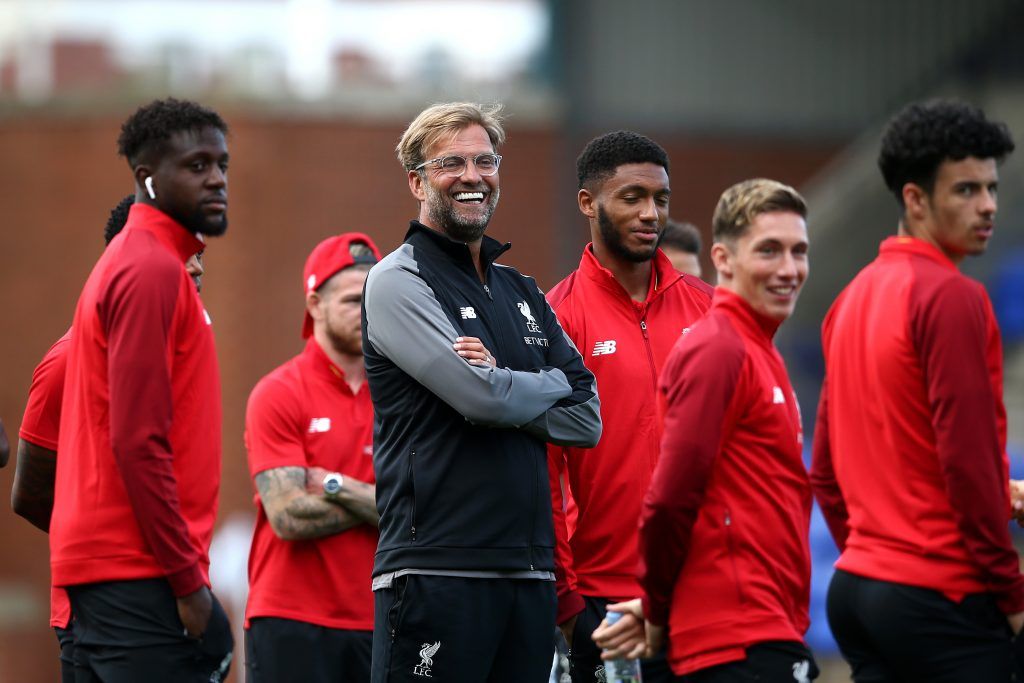 As Honigstein writes, "some sense of parity could be achieved by better organisation." This is why Sweden reached the last-eight of the World Cup and it's why Iceland qualified for the tournament. It's partly the reason Ireland did not qualify. Those teams achieved parity with more talented sides because they were extremely well organised. They were more than the sum of their parts and didn't rely on individual talent to win games.
There are other ways to win than relying on great players to produce something special. Sweden are better now than they were when they had Zlatan Ibrahimovic, their only world-class player.
In an interview with Daniel McDonnell in The Irish Independent, O'Neill spoke about what Ireland could learn from Croatia, a smaller nation, reaching the World Cup final. According to McDonnell, "O'Neill says the main lesson that Ireland can take from Croatia's success at the World Cup is the value of getting players to top clubs."
As Honigstein writes, "some sense of parity could be achieved by better organisation." This is why Sweden reached the last-eight of the World Cup and it's why Iceland qualified for the tournament. It's partly the reason Ireland did not qualify. Those teams achieved parity with more talented sides because they were extremely well organised. They were more than the sum of their parts and didn't rely on individual talent to win games.
There are other ways to win than relying on great players to produce something special. Sweden are better now than they were when they had Zlatan Ibrahimovic, their only world-class player.
In an interview with Daniel McDonnell in The Irish Independent, O'Neill spoke about what Ireland could learn from Croatia, a smaller nation, reaching the World Cup final. According to McDonnell, "O'Neill says the main lesson that Ireland can take from Croatia's success at the World Cup is the value of getting players to top clubs."
"We want to see a scenario where we have a number of players in the Premier League. That's a target that younger players should be setting themselves," O'Neill said.Unless there is a significant change to how Ireland produce players, or a miracle, Irish players won't be regulars at top clubs during O'Neill's tenure. If that was the most valuable lesson the Ireland manager took from the World Cup, then it conveys that he is wedded to the "go out on the pitch and do your job" approach. He is putting the emphasis on the players to produce rather than on the manager to improve those at his disposal through coaching, a tactical plan and some organisation.
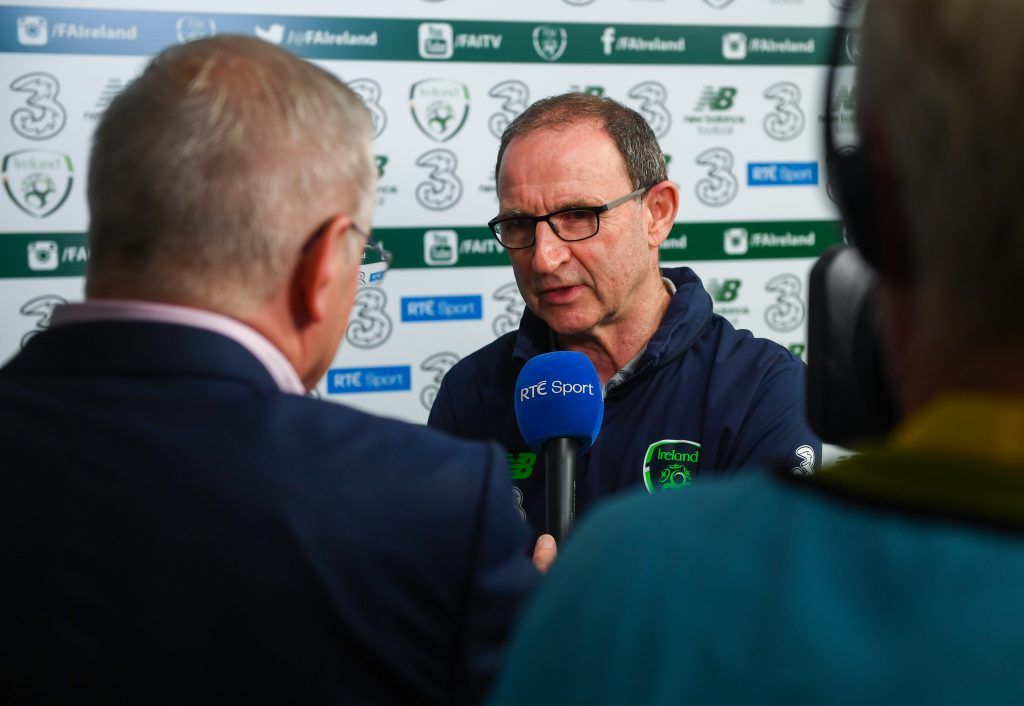 O'Neill appears to think that football is all about the players, rather than the manager. This is a questionable approach and one that has been bypassed. If it were true, then there would be no great managers. Alex Ferguson, Pep Guardiola, Jose Mourinho and Jurgen Klopp would have been rendered redundant.
"Football is not about players, or at least not just about players," Jonathan Wilson writes in Inverting the Pyramid, a book about the history of football tactics.
O'Neill appears to think that football is all about the players, rather than the manager. This is a questionable approach and one that has been bypassed. If it were true, then there would be no great managers. Alex Ferguson, Pep Guardiola, Jose Mourinho and Jurgen Klopp would have been rendered redundant.
"Football is not about players, or at least not just about players," Jonathan Wilson writes in Inverting the Pyramid, a book about the history of football tactics.
"It is about shape and about space, about the intelligent deployment of players, and their movement within that deployment."O'Neill would undoubtedly dismiss this notion, probably before referencing how many European Cups he won with Nottingham Forest. If one was to accept his view of football, that it is merely about great players, then, of course, Ireland had no right to be at the World Cup. However, if we are to look at the example of Sweden and Iceland, which show that a lack of world-class players isn't a barrier to success, then Ireland's absence from the tournament isn't quite so easy to explain. The World Cup proved that you don't need great players to have a successful team. Unfortunately, the Ireland team doesn't have great players or anyone who realises that football isn't just having those world-class players.
Explore more on these topics: